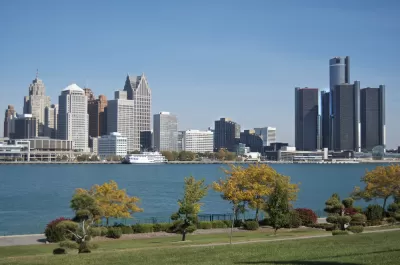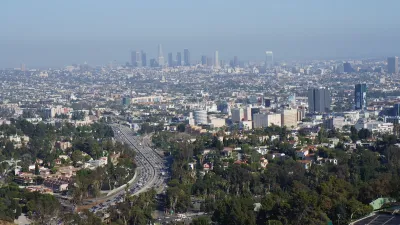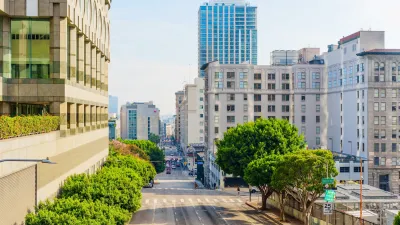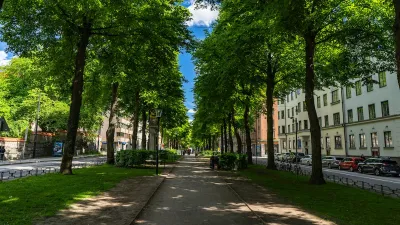A Detroit nonprofit has been planting trees in parts of the city with the lowest tree canopy.

Hadassah Patterson, writing in Next City, reports on a Detroit nonprofit that has been greening the city for over three decades. “The nonprofit has planted over 135,000 trees in the city since 1989, with an increasing focus on low-income or minority areas that were historically redlined. Trees currently cover nearly 23% of formerly redlined (grade D) neighborhoods compared to 43% of formerly greenlined (grade A) neighborhoods in 37 major U.S. cities.”
The article notes that “Greening of Detroit President Lionel Bradford says reforesting can help combat the higher emissions and hotter temperatures that come with urban areas.” According to Bradford, trees also soak up stormwater, preventing water backups that can foster mosquito infestations and other public health threats. “Greening of Detroit partners with the city to determine the best varieties of trees and locations for planting in neighborhoods and parks.”
The tree planting is just one part of Greening of Detroit’s mission. “In addition to employing community members and working with volunteers, Greening of Detroit runs two workforce development programs that are the backbone of their operations,” Patterson writes. “While Greening of Detroit has been working to increase funding streams from their own services, such as selling plants from its nursery, most of its funding comes from grants and donations from the government, foundations, corporations and individuals.”
FULL STORY: Detroit Nonprofit Is Turning Redlined Streets Green

Planetizen Federal Action Tracker
A weekly monitor of how Trump’s orders and actions are impacting planners and planning in America.

Maui's Vacation Rental Debate Turns Ugly
Verbal attacks, misinformation campaigns and fistfights plague a high-stakes debate to convert thousands of vacation rentals into long-term housing.

Cuomo Is the Candidate of Both NIMBYs and Developers. What Gives?
In the New York City mayoral race, odd bedfellows align to preserve the housing status quo.

Amtrak Rolls Out New Orleans to Alabama “Mardi Gras” Train
The new service will operate morning and evening departures between Mobile and New Orleans.

The Subversive Car-Free Guide to Trump's Great American Road Trip
Car-free ways to access Chicagoland’s best tourist attractions.

San Antonio and Austin are Fusing Into one Massive Megaregion
The region spanning the two central Texas cities is growing fast, posing challenges for local infrastructure and water supplies.
Urban Design for Planners 1: Software Tools
This six-course series explores essential urban design concepts using open source software and equips planners with the tools they need to participate fully in the urban design process.
Planning for Universal Design
Learn the tools for implementing Universal Design in planning regulations.
Heyer Gruel & Associates PA
JM Goldson LLC
Custer County Colorado
City of Camden Redevelopment Agency
City of Astoria
Transportation Research & Education Center (TREC) at Portland State University
Jefferson Parish Government
Camden Redevelopment Agency
City of Claremont





























